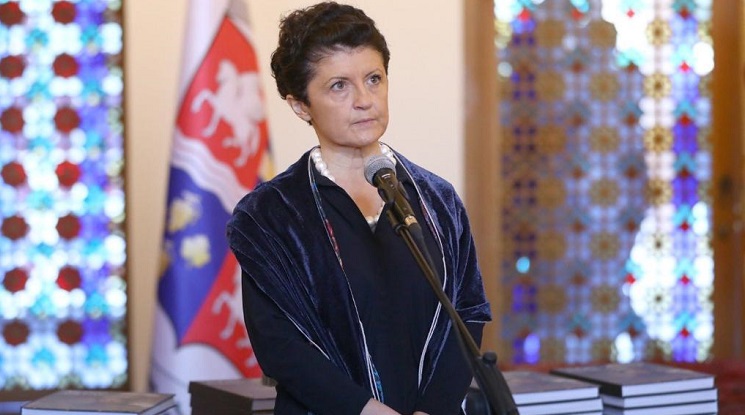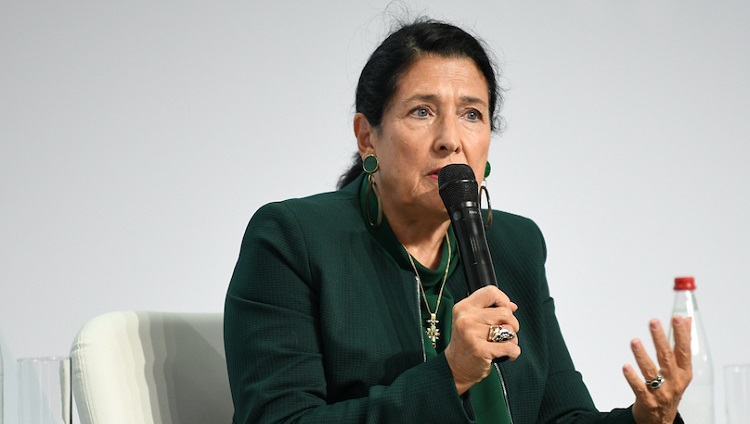Vice PM urges president to refrain from calling on court over imprisoned ex-pres. Saakashvili

Thea Tsulukiani, the vice prime minister and former minister of justice of Georgia, on Monday reiterated domestic courts were “free” in their decisions. Photo: culture ministry press office
Thea Tsulukiani, the vice prime minister and former minister of justice of Georgia, on Friday urged president Salome Zourabichvili to refrain from making “any calls” to domestic courts over the imprisoned former president Mikheil Saakashvili, saying it could be seen as interference in judicial developments around the former official.
Tsulukiani’s comment came on the heels of the recent statement by Zourabichvili, who said the judiciary should allow Saakashvili’s transfer abroad for treatment if an upcoming health report on his condition confirmed “serious complications”. The president also said such a decision would “prove” the court’s independence and benefit state interests.
Responding to the calls, Tsulukiani said rulings of Georgian courts were “unbiased”, and added no one including the president could “tell judges what to do”.
The minister acknowledged the government was interested in the president’s position over the matter as she was the only official with the right to pardon Saakashvili after all cases against him are closed.
The president was strongly against issuing pardon on Saakashvili, and I hope her attitude remains the same”, Tsulukiani said, stressing “whether someone believes it or not, the country’s judiciary is free [from political interventions]”.
 Zourabichvili said earlier this week she had no plans to pardon the former president, even once all mandatory procedures are finalised. Photo: president's press office.
Zourabichvili said earlier this week she had no plans to pardon the former president, even once all mandatory procedures are finalised. Photo: president's press office.
In her recent interview for the BBC, Zourabichvili said she was observing Saakashvili’s health matters “very closely” and noted “I do not want him to die in prison”, but said she had no plans to pardon him, citing “grave” human rights violations under his term in office.
Saakashvili was arrested in Tbilisi in October 2021 after his clandestine return to Georgia and is currently serving a six-year term for two separate abuse of power cases while in office, with three other cases involving his term pending.
The former top official, who currently holds Ukrainian citizenship and chaired the executive committee of the country’s national reforms council before his detention, has claimed he is in “urgent need” of treatment abroad, with his legal team and supporters saying domestic professionals have been “unable” to make “accurate diagnosis and ensure relevant treatment” for months.
Responding to the claims, the country’s justice ministry has said “all necessary services” have been ensured for the former president in detention since his arrest, stressing his potential transfer for treatment abroad could only be ruled by courts.
 Tweet
Tweet  Share
Share